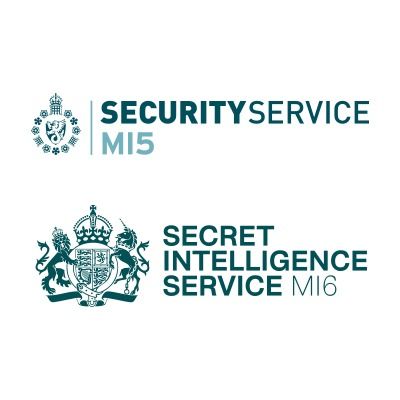
Public Sector Career Guide
Thinking about a career that makes a real difference? The public sector could be exactly what you're looking for. From keeping communities safe to caring for patients, public sector workers touch millions of lives every day.
Whether you're drawn to frontline roles helping people directly or prefer working behind the scenes on the policies that shape our country, let's dive into everything you need to know about building a career in the public sector.

What are public sector jobs?
Public sector jobs are roles that serve your community and make a real difference to people's lives. That nurse who helped out, your favourite teacher and the local police officer keeping your town safe are all public sector workers.
The public sector is massive. Over 6 million people work in the field and includes everything from healthcare and education to defence and local councils. Some jobs you can find in the public sector include:
Teacher
Doctor
Firefighter
Civil servants
Social workers
Armed forces
Nurses
Police officers.
Although a lot of these are so different, what connects them is improving life for everyone in the UK.
What’s the difference between civil service and the public sector?
Lots of people mix them up! The civil service is actually part of the public sector.
The civil service is made up of people who work directly for government departments and agencies. Civil servants help develop government policies, manage public services, and make sure laws get implemented properly. You'll find them in departments like the Home Office, Treasury, or Department for Education working on everything from immigration policies to education reforms.
Although there are jobs within the civil service that are all about policy-making, there are loads of roles that are public-facing.
The civil service doesn’t serve one particular government either, they work within the best interests of the public. We have a whole guide for you to get into, read on next.
How do I get a job in the public sector?
Getting into the public sector is so much easier than you might think. Many public sector employers are actively looking for apprentices, giving you the chance to gain real experience, build valuable skills and earn while you learn. It's a solid path to building the career you want.
Click to find out more about each path:

Army Apprenticeships
Thinking about joining the Army? Discover what army apprenticeships are and how you can earn £26k while building lifelong skills and protecting the country.

Become a Teacher
Teaching. It’s a career like no other. Where no two days are the same, and neither are the pupils. That’s what makes it so rewarding. Here's how to become a teacher.

Civil Service Apprenticeships
If you're passionate about helping people, a career with the civil service could be for you. Here's how to snap up a civil service apprenticeship.

Dentistry Apprenticeships
Thinking about a career in dentistry? Dentistry apprenticeships let you train as a dental nurse, hygienist or technician while you earn. Read to find out more.

Midwifery Apprenticeships
Thinking about becoming a midwife? Midwifery apprenticeships let you earn your degree for free while gaining hands-on experience supporting families. Here's how to join.

NHS Apprenticeships
Think a job with the NHS is out of your reach? Think again. The NHS offers loads of apprenticeships from dentistry to HR. Here's how you can join the NHS..
Who are the top public sector employers?
You have so many choices! From government offices to schools and hospitals, there are so many companies looking for the future of the public sector.
According to our student-written reviews, these are some of the top student employers to work for in the public sector:

I have received a lot of support from my training provider when working toward my qualification. This has consisted of guiding me in the right direction when faced with a problem in my role and providing me with reasonable/helpful solutions. Police Community Support Officer, Northumbria Police
Do public sector jobs pay well?
You might be surprised by how competitive public sector salaries can be. How much you’re paid really does depend on the type of work you’re doing, your location and your years of experience. Let’s break it down.
For entry level roles, you could earn around £25,000 per year, which can grow to around £35,000 per year. Some of the highest paid jobs (like management, consultancy and senior roles) could pay up to £100,000 per year.
You’ll also get a wide range of benefits depending on your job. For example, midwives get paid extra when working weekends and public holidays, police officers get free physiotherapy and on-site gyms. There are also pension schemes and paid holidays.
One of the greatest parts about working in the public sector is that once you’re in, you're in. You’ll essentially have a job for life.
What skills do you need to work in the public sector?
You probably have more relevant skills than you think. Public sector employers value the everyday experiences you've had throughout school and life. Here are some of the soft skills employers look for:
Communication. You’ll need to be able to explain things clearly and listen
Teamwork. Working well alongside team members and the public
Problem-solving. Helping people find practical solutions
Adaptability. Being able to handle change and adapt to situations and new ways of working (especially with ever-changing policies)
Attention to detail. Spotting mistakes and making sure there’s accurate information
Empathy. You’ll need to be able to understand and relate to people from all backgrounds
Time management. You’ll work on projects that have deadlines
Resilience. Some jobs within the public sector can be difficult, so you’ll need to know how to stay positive when facing challenges.
Different roles need different qualifications, but many apprenticeships only require GCSEs. Most employers want to know that you have the willingness to learn and care about your job and the people you provide services for.
Worried about having technical skills? Don’t be. You’ll learn those on the job through your work experience training.
Find Public Sector Jobs
Ready to discover where work experience in the public sector can take you? Click below to get started.






























